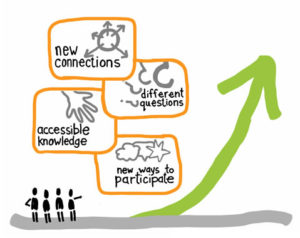A one-week training course on social innovation in rural areas will take place at the Mediterranean Agronomic Institute of Zaragoza on 18-22 November 2019. The course is organised in the framework of the H2020 EU-funded project Social Innovation in Marginalised Rural Areas (SIMRA) to address the importance of social innovation in less-favoured rural areas.

The course will be given by an international team of lecturers participating in this project, coming from international organisations, research centres, universities and the practice community.
At the end of the course participants will have:
- Gained a critical understanding of the concept of social innovation and its influence on social, economic and environmental outcomes in rural areas.
- Recognised the diverse roles of communities and civil society in the development of social innovations.
- Gained awareness of the multiple applications of rural social innovation to support societal well-being.
- Been introduced to a range of tools and methods to better support social innovation.
- Acquired competences for identifying, categorising and analysing cases of social innovation in Europe and non-European Mediterranean countries.
- Been able to identify factors that affect the development of social innovation in rural areas.
- Appreciated the challenges of evaluating social innovation.
- Explored the policy context for social innovation and learned how policy can stimulate or constrain its development.
The full programme of the course (including a study visit) is available here.
Practical information
How to apply? Candidates must apply online at the following address: http://www.admission.iamz.ciheam.org/en/ before September 6th, 2019. Applications include the curriculum vitae and copy of the supporting documents most related to the subject of the course. We advise you to apply as soon as possible as the number of participants is limited to 25.
Who is the target audience? The course is intended for decision makers, public, private and third sector development agents, evaluators, facilitators, technical advisors, researchers and other stakeholders involved in promoting, financing, planning, implementing or assessing social innovation projects in rural areas.
Does the training cost money? All participants will be exempt from the payment of registration fees. Candidates from Mediterranean countries and from other European countries may apply for scholarships covering the cost of travel and full board accommodation on the campus. Candidates from other countries who require financial support should apply directly to other national or international institutions.
In what language will the course be given? English, French or Spanish will be the working languages of the course. Simultaneous interpretation of the lectures in these three languages.
For more information, consult the programme of the course or do not hesitate to contact us.
16 May 2019









